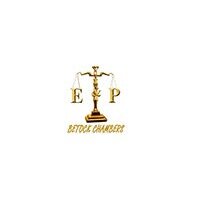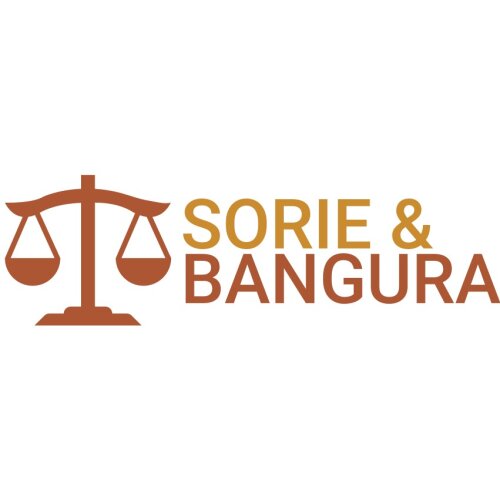Best Communications & Media Law Lawyers in Freetown
Share your needs with us, get contacted by law firms.
Free. Takes 2 min.
List of the best lawyers in Freetown, Sierra Leone
About Communications & Media Law in Freetown, Sierra Leone
Communications & Media Law in Freetown, Sierra Leone, governs the activities and operations related to broadcasting, telecommunications, print media, online platforms, and other modes of communication. It encompasses a wide array of legal issues including, but not limited to, freedom of speech, censorship, intellectual property rights, advertising, privacy, and defamation. Given the rapidly evolving landscape of digital communications and the media industry, these laws are crucial in ensuring ethical practice, protecting citizens' rights, and maintaining the integrity of information dissemination.
Why You May Need a Lawyer
Several situations might necessitate the need for legal assistance in the realm of Communications & Media Law:
- Defamation Cases: If you believe you've been defamed by the media or require defense against a libel claim.
- Intellectual Property Issues: Protecting copyrights, addressing plagiarism, and ensuring fair use in the media.
- Censorship and Freedom of Speech: Challenging or addressing infringements on freedom of speech and press rights.
- Regulatory Compliance: Navigating the complex regulations governing media broadcasts and telecommunications.
- Privacy Concerns: Protecting personal information from unlawful use by media outlets or communication platforms.
Local Laws Overview
Sierra Leone has specific laws and regulatory frameworks governing communications and media. Key aspects include:
- The Independent Media Commission Act: This act regulates the activities of the media, ensuring accountability and transparency among media practitioners.
- The Telecommunications Act: Governs telecommunications operations, aiming to facilitate effective communication services across the country.
- Cybersecurity and Protection Legislation: Protects individuals against cybercrime and emphasizes safeguarding digital communication channels.
- Freedom of Information Act: Promotes transparency by granting citizens access to information held by public authorities.
Frequently Asked Questions
What is the role of the Independent Media Commission?
The Independent Media Commission (IMC) regulates broadcast licensing, ensures media standards are upheld, and addresses public complaints against media outlets.
How can I protect my intellectual property in media?
By registering copyrights, trademarks, or patents related to your content and seeking legal advice for any potential infringement.
What are my rights if I believe I am a victim of defamation?
You have the right to consult a legal professional to examine the defamatory content, and if necessary, to file a lawsuit to claim damages.
Can the government restrict my freedom of speech on media platforms?
The Sierra Leonean constitution guarantees freedom of speech, but it can be subjected to reasonable restrictions in the interest of national security or public order.
What legal obligations do media houses have?
They must comply with regulations set by the IMC and other governing laws concerning broadcasting, advertising, and journalistic integrity.
How are consumer rights protected in electronic communications?
Regulations ensure service providers deliver transparent communication, protect user data and adhere to fair trade practices.
What should I do if I face cyber harassment?
Report the incident to the Cybercrime Unit of the Sierra Leone Police, and seek legal advice if necessary.
Are there laws against false advertising in Sierra Leone?
Yes, there are regulations that prohibit deceptive practices and uphold truthfulness in advertising.
How can I file a complaint against a media outlet?
Complaints can be submitted to the IMC, which is responsible for investigating and addressing such issues.
What steps are involved in securing a broadcasting license?
Application procedures involve submitting necessary documents to the IMC, ensuring compliance with content and technical standards, and paying applicable fees.
Additional Resources
Several resources can be invaluable when seeking legal advice in Communications & Media Law:
- Independent Media Commission (IMC): Provides guidelines and regulatory oversight for media operations.
- National Telecommunications Commission (NATCOM): Oversees telecommunications service providers and enforces compliance under the Telecommunications Act.
- Legal Aid Board: Offers assistance to those who cannot afford legal counsel.
Next Steps
If you require legal assistance in Communications & Media Law:
- Consult with a licensed legal practitioner specializing in Communications & Media Law.
- Gather any relevant documents, evidence, or records pertinent to your issue.
- File complaints with appropriate regulatory bodies if needed.
- Consider reaching out to professional legal associations or nonprofit organizations that can provide advice or representation.
Lawzana helps you find the best lawyers and law firms in Freetown through a curated and pre-screened list of qualified legal professionals. Our platform offers rankings and detailed profiles of attorneys and law firms, allowing you to compare based on practice areas, including Communications & Media Law, experience, and client feedback.
Each profile includes a description of the firm's areas of practice, client reviews, team members and partners, year of establishment, spoken languages, office locations, contact information, social media presence, and any published articles or resources. Most firms on our platform speak English and are experienced in both local and international legal matters.
Get a quote from top-rated law firms in Freetown, Sierra Leone — quickly, securely, and without unnecessary hassle.
Disclaimer:
The information provided on this page is for general informational purposes only and does not constitute legal advice. While we strive to ensure the accuracy and relevance of the content, legal information may change over time, and interpretations of the law can vary. You should always consult with a qualified legal professional for advice specific to your situation.
We disclaim all liability for actions taken or not taken based on the content of this page. If you believe any information is incorrect or outdated, please contact us, and we will review and update it where appropriate.












